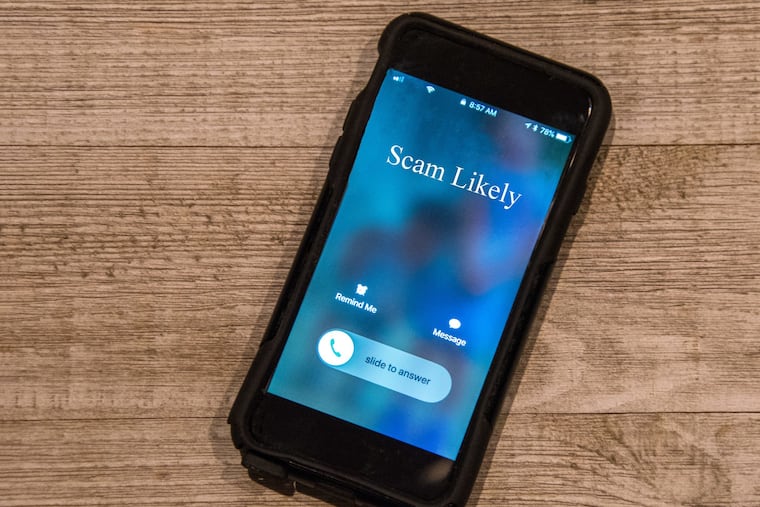Beware of switching scams by electric telemarketers using ‘super high-pressure tactics,’ PUC warns
Pa. regulators say electricity telemarketers are using “harassing and intimidating” tactics to get customers to switch power suppliers, including false threats of shutoffs

State regulators are cautioning utility customers about electricity telemarketers using “harassing and intimidating” tactics to get them to switch power suppliers, and encouraged customers to report any suspicious activity.
The Pennsylvania Public Utility Commission said that it has observed an uptick in complaints about telemarketers who use “super high-pressure tactics" to frighten residential customers to switch, said Nils Hagen-Frederiksen, the PUC’s spokesman.
The salespersons tell customers that their current electricity supplier is going out of business, and imply their power will be shut off if they do not switch. “These are calls that have moved across a very clear line and include threats to terminate customers,” he said.
Under PUC regulations, customers can’t get shut off if their supplier goes under -- their local utility will resume supplying their service. Only a utility can initiate a shut-off, and only after proper customer notification and allowing the customer to appeal.
“You’re not going to get your electricity cut off even if your supplier runs into some kind of business trouble,” said Hagen-Frederiksen.
The PUC periodically cracks down on competitive electrical suppliers who play fast and loose with their marketing efforts. The high-pressure tactics are the latest episode of bad behavior that has bedeviled the business since Pennsylvania switched over to market rates at the end of 2010, allowing customers to choose a competitive supplier, or to continue to buy power from the incumbent utility.
The PUC in April issued guidance to suppliers, reminding them of the strict rules governing the business, and the PUC’s “zero tolerance” for “slamming” customers -- switching them without their cooperation.
The recent spate of complaints was aimed primarily at aggressive telemarketers, said Hagen-Frederiksen, though door-to-door sales people, sometimes posing as representatives of utilities or government, are an ongoing source of complaints.
Alternative suppliers won over about one-third of Pennsylvania customers in the first few years of competitive shopping, but their market share has declined in recent years as electricity prices have stabilized, and fewer suppliers are able to offer substantial discounts to the regulated prices offered by utilities like Peco.
As a result, about 32 percent of Pennsylvania’s 5.9 million electricity customers are now served by alternative electricity suppliers, down from 37 percent two years ago. The alternative suppliers have captured the biggest customers, and provide about about 62.6 percent of the total kilowatt hours sold.
Under state regulations, the PUC says that sales people must immediately identify themselves, identify the supplier they are representing and the reason for the call.
To avoid the possibility of unauthorized change in suppliers, consumers should not share their account numbers unless they intend to initiate a change in service. Customers who are switching should be notified by mail of the change, and they can double-check their supplier and their current rate by reviewing their monthly bill statements.
Customers always have the option of remaining with their utility, which buys its power supplies under strictly regulated auction process, and is not allowed to mark up the price.
The PUC encourages customers encountering an aggressive sales agent, or potential scams, to contact the PUC’s Bureau of Consumer Services at 1-800-692-7380, as well as to alert their local utility.